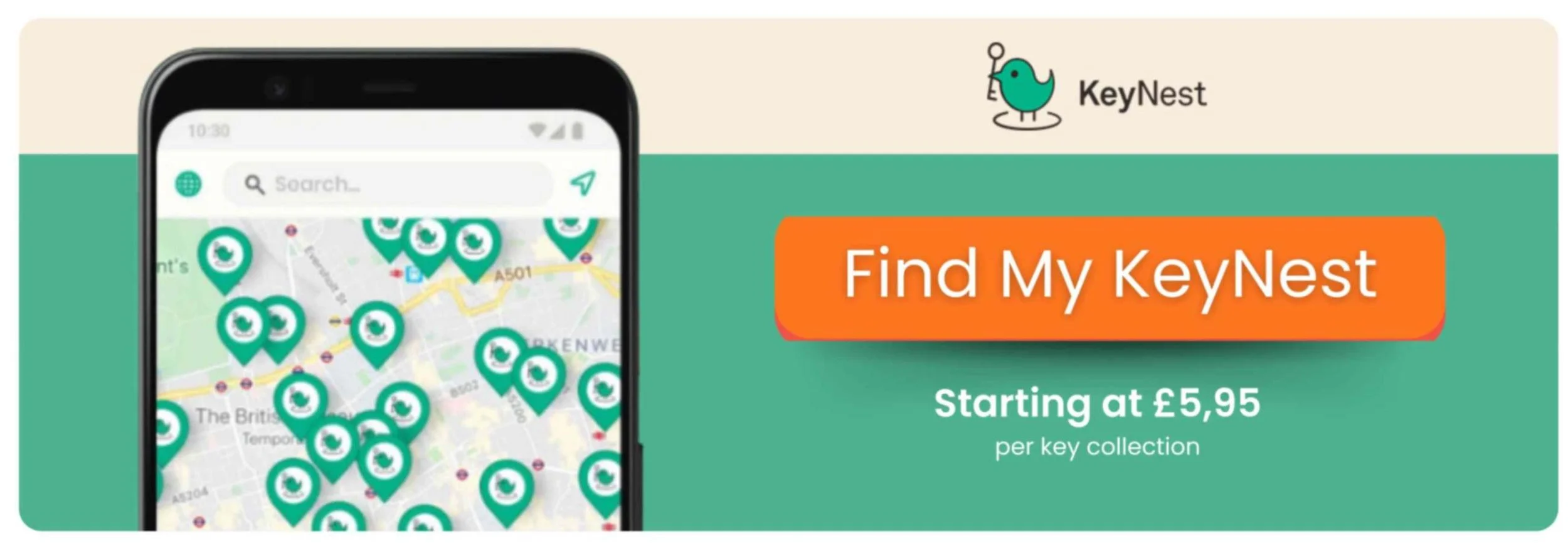Over 1500 key exchange locations nationwide
Airbnb Short-Term Rental Regulations At Oxford In 2025
Oxford, known for its historic charm and academic prestige, continues to attract tourists and short-term renters. However, the city’s regulations for Airbnb and other short-term rental platforms have evolved significantly in recent years. In 2025, hosts need to stay informed about these rules to avoid penalties and maximize their business potential of their rent business.
Local authorities aim to balance tourism with residents' needs, leading to stricter regulations on property use and registration. Understanding these regulations is essential for maintaining compliance while providing guests with an excellent experience. From licensing requirements to zoning laws, Oxford’s approach to short-term rentals is comprehensive. Whether you're a seasoned host or a newcomer, being well-informed can save you time, money, and legal complications.
This article will explore the key aspects of Airbnb regulations in Oxford, offering actionable insights for hosts. Let’s dive into what you need to know to navigate these rules effectively in 2025.
Licensing, Registration And Planning Permission Rental Requirements For Airbnb Landlords
Oxford's licensing and registration rules aim to track and regulate short-term lodgings. As a host, understanding these requirements is crucial for staying compliant. The city mandates specific licensing for properties used as short-term lodgings to address safety, tax compliance, and housing supply concerns.
Licensing not only legitimizes your business but also ensures you're part of a sustainable rental ecosystem. This section explores the application process, fees, and common challenges hosts face.
Key Takeaways:
Mandatory Licensing: All short-term lodging properties must be registered.
Application Fees: Understand the cost of obtaining and renewing licenses.
Safety Standards: Properties must meet fire and safety regulations.
Urban Planning Considerations: Licensing approvals depend on property location.
Annual Renewal: Licenses must be renewed each year.
Non-Compliance Penalties: Hosts face fines for operating without a license.
Zoning Laws & Neighborhood Restrictions For Short-Term Let
Oxford enforces strict urban planning laws to protect residential neighborhoods from excessive tourist traffic. Hosts must be aware of how these laws apply to their properties. Zoning laws dictate where short-term lodgings can operate, prioritizing areas that can handle increased guest activity.
By understanding urban planning restrictions, hosts can avoid conflicts with local authorities and residents. This section provides insights into navigating Oxford’s urban planning landscape.
Key Insights To Know:
Urban Planning Zones: Identify areas where short-term lodgings are permitted.
Residential Limits: Some neighborhoods restrict short-term lodging operations.
Noise Ordinances: Adhere to local noise regulations to avoid complaints.
Parking Requirements: Ensure adequate parking for guests.
Community Agreements: Work with neighborhood associations when required.
Property Inspections: Be prepared for periodic checks from authorities.
City Council Taxation Policies For Airbnb Hosts In Oxford
Tax compliance is a critical aspect of managing an Airbnb property in Oxford. Hosts are required to report income from short-term lodgings and may be subject to additional local taxes. Oxford’s taxation policies aim to level the playing field between Airbnb hosts and traditional accommodation providers.
Understanding these obligations is essential to avoid audits and penalties. This section discusses the tax policies that every host should know.
Key Takeaways:
Income reporting: Declare all lodging income to tax authorities.
Tourism tax: Some bookings may incur additional local taxes.
VAT considerations: Hosts with high income may need to register for VAT.
Deductions: Understand allowable expenses for tax purposes.
Tax deadlines: Keep track of filing deadlines to avoid late fees.
Record-keeping: Maintain accurate records of all transactions.
Minimum Stay Rules And Occupancy Limits
To address housing shortages, Oxford has introduced minimum stay requirements and occupancy limits for short-term lodgings. These rules aim to discourage excessive turnover and preserve housing availability for long-term residents.
Hosts must ensure their booking policies align with these regulations to avoid fines and disputes. This section covers what hosts need to consider when setting booking terms.
Key Insights:
Minimum stay durations: Hosts may need to enforce multi-night bookings.
Occupancy limits: Adhere to maximum guest numbers based on property size.
Seasonal restrictions: Some rules apply only during peak tourist seasons.
Shared spaces: Rules differ for whole-home vs. shared-space rentals.
Guest registration: Maintain records of all guests for legal purposes.
Compliance checks: Authorities may review booking histories for violations.
Addressing Resident Concerns And Community Impact
Oxford's Airbnb regulations emphasize maintaining harmony between hosts and residents. Addressing community concerns, such as noise, parking, and over-tourism, is crucial for long-term success. By fostering good relationships with neighbors and adhering to guidelines, hosts can build a positive reputation. This section highlights ways to balance business interests with community well-being.
Key Takeaways:
Noise control: Implement quiet hours and communicate rules to guests.
Parking management: Provide clear parking instructions for guests.
Waste disposal: Ensure proper garbage and recycling practices.
Open communication: Stay transparent with neighbors about your operations.
Guest behavior: Screen guests and set clear expectations for their stay.
Supporting local economy: Encourage guests to visit local businesses.
Staying Updated On Changing Regulations To Require Planning Permission
Oxford’s short-term rental policies continue to evolve, making it vital for hosts to stay informed. Changes in regulations can affect licensing, taxes, and operational practices. Hosts should proactively monitor updates and participate in community discussions.
Staying ahead of regulatory changes ensures compliance and protects your Airbnb business. This section offers tips on keeping up-to-date.
Key Insights:
City council updates: Follow local government announcements.
Industry forums: Join online communities for Airbnb hosts.
Professional advice: Consult legal or tax experts for guidance.
Newsletters: Subscribe to updates from relevant organizations.
Networking events: Attend local host meetups to share insights.
Feedback participation: Engage in public consultations on new rules.
Final Thoughts
Navigating Oxford’s Airbnb regulations in 2025 requires hosts to stay informed, proactive, and adaptable. From licensing and urban planning laws to taxation and community impact, understanding these rules is critical for maintaining a compliant and successful operation. By adhering to minimum stay requirements and fostering good neighborly relations, hosts can contribute to a sustainable short-term rental ecosystem.
Proactively monitoring changes in regulations and staying engaged with the community can help hosts avoid legal issues and optimize their business strategies. Compliance not only protects your Airbnb business but also enhances its credibility and reputation. As Oxford continues to refine its policies, staying ahead of the curve will be key to long-term success.
With proper planning and adherence to regulations, hosts can thrive in Oxford’s evolving short-term rental landscape. Implementing these practices ensures that your Airbnb property remains a trusted and valued part of the community.
About Us: KeyNest
KeyNest offers you a convenient service for storing and exchanging your property keys. You can drop off a key at any of the 7,000+ locations in our network, so there’s one such Point located next to your property.
Guests, cleaners or contractors can then collect the key securely from a KeyNest Point or KeyNest Locker which is usually open 24/7. You'll be notified each time the key is picked up or returned, and you can even customize check-in and check-out times. By leveraging technology and a global network of locations, KeyNest continues to redefine property management, offering solutions tailored to meet the evolving needs of the rental market..
KeyNest has an ever-expanding global network of locations located just minutes from your property. To find out more you can contact us.
Neil Beltran 2 January 2025




